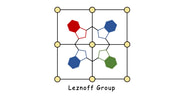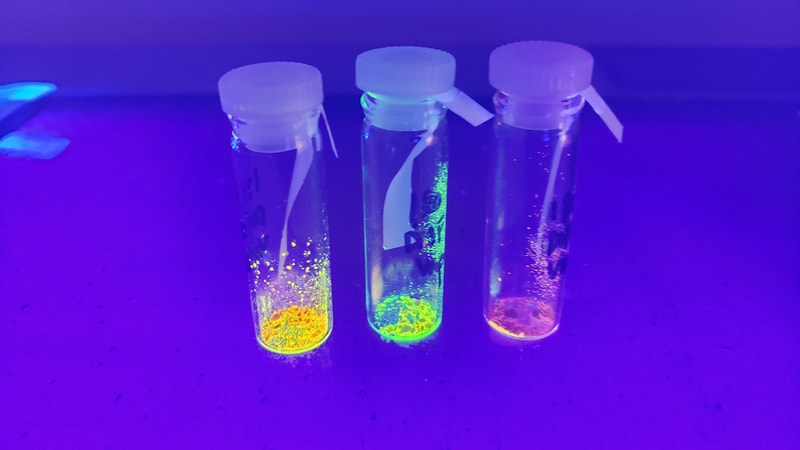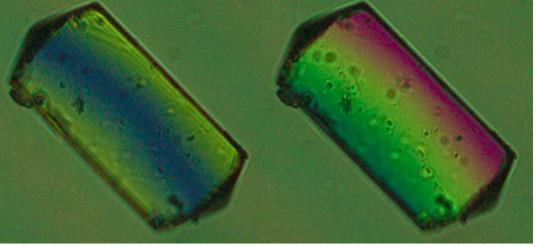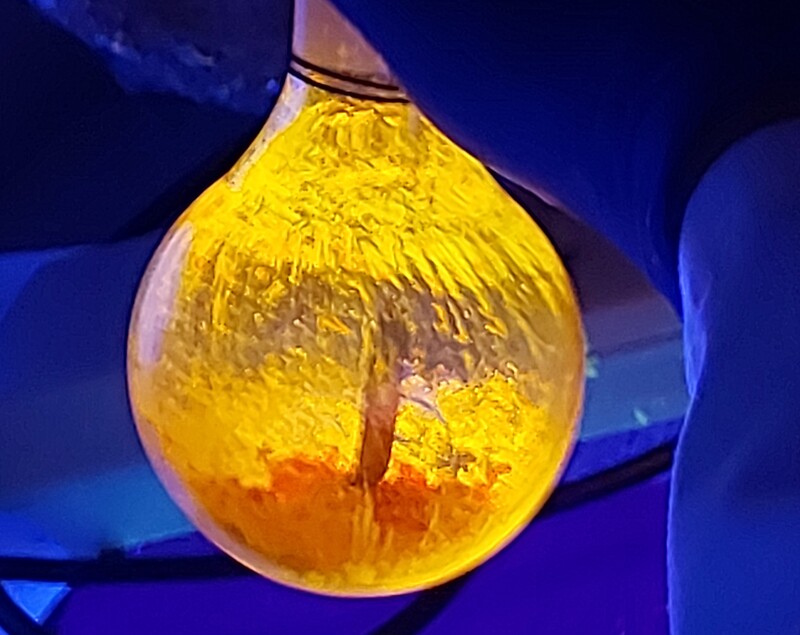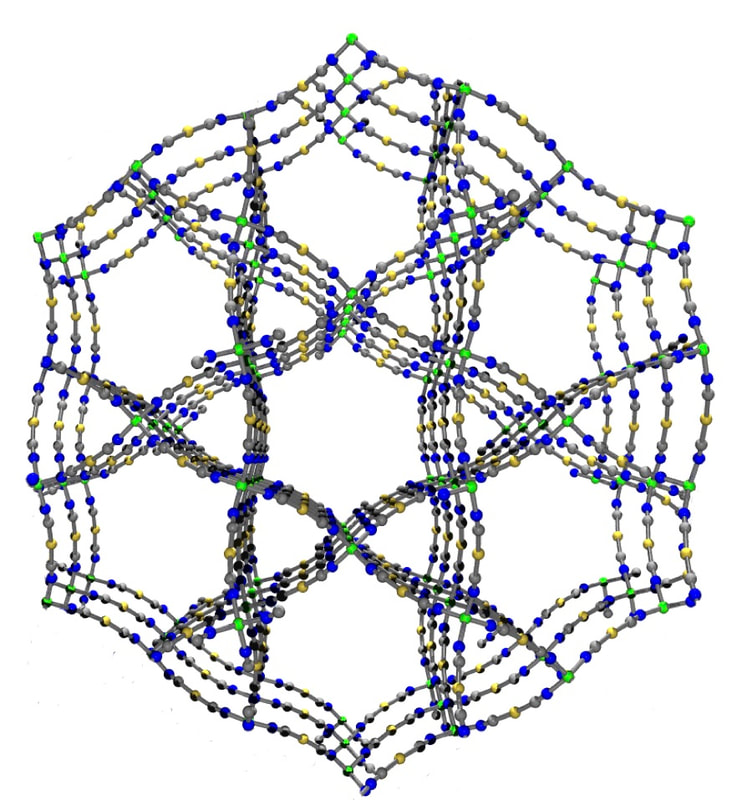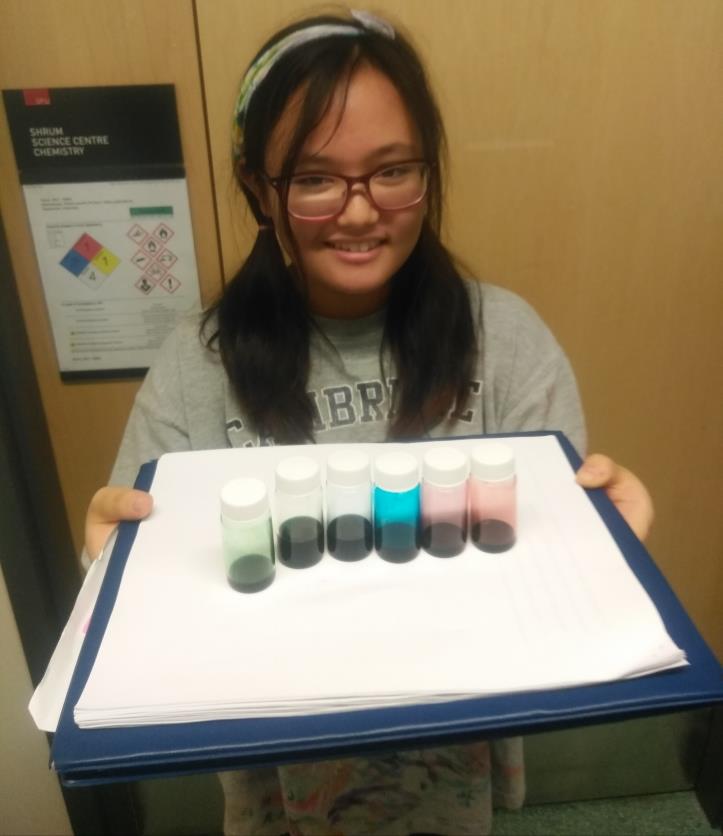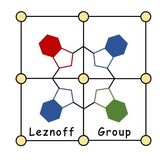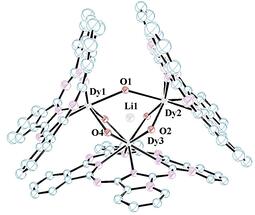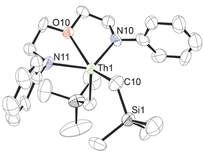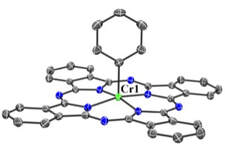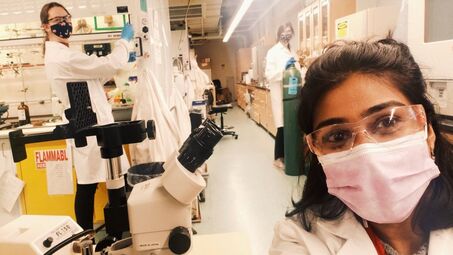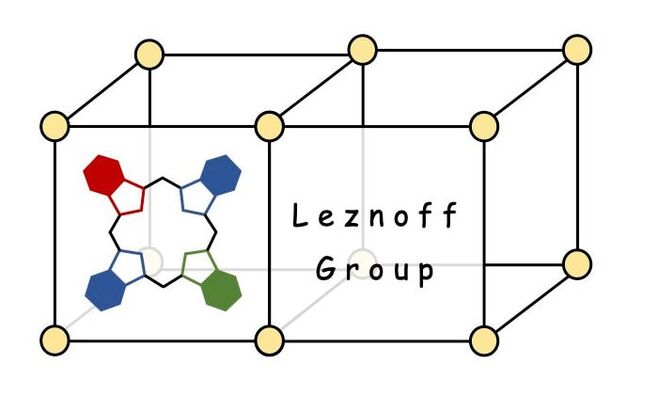RESEARCH
As an inorganic coordination chemist, the periodic table is a fabulous playground! Main-group alkali/alkali-earth, transition-metals, lanthanides and actinides all gain attention in the Leznoff group. We are particularly interested in the areas of coordination polymer materials and their uses, and new phthalocyanine-based compounds (traditionally very intense blue/green dyes - hence our website colour background!), with applications ranging from emissive and sensory materials to paramagnetic organometallic chemistry, (electro)catalytic reduction of small molecules (such as CO2) and very high-intensity dyes.
THE LEZNOFF GROUP EXPERIENCE
The Leznoff group is very multidisciplinary, and graduate students who join my group will experience a blend of synthesis, property measurement and spectroscopic studies. Having a diverse research program in coordination chemistry (coordination polymer materials, phthalocyanines, organometallic and actinide chemistry) exposes students to a wide range of areas, fostering a cross-germination of ideas.
|
The determination of solid state structures by X-ray crystallography plays a crucial role in our research and my students routinely collect diffraction data and solve their own crystal structures. They will also gain experience in an unusually wide range of techniques, including FTIR and Raman spectroscopy, UV-vis-NIR absorption and emission, multinuclear NMR (and NMR of paramagnetic complexes), ESR, DFT calculations, birefringence (unique in Canada), Mossbauer, porosimetry, cyclic voltammetry and thermogravimetric analysis, as appropriate to their project, correlating design, structure and properties of materials. They will also be exposed to a variety of magnetic measurement methods, including the use of a state-of-the-art SQUID magnetometer at SFU. If appropriate, students will be trained in the synthesis and manipulation of air and moisture-sensitive compounds using vacuum-line/Schlenk techniques and a state-of-the-art glovebox system. We work with SFU physicists to measure muon-spin resonance at the TRIUMF cyclotron.
|
|
My students become immersed in a wide variety of non-laboratory experiences that will hone them into top-class scientists and prepare them for a broad range of careers: academia, industry, policy makers, educators and communicators. Thus, I impart not only high-level interdisciplinary laboratory skills and safety, but organically incorporate soft-skills, leadership and management into the life of my students so as to mold the highest quality, well-rounded, globally-minded researchers. All students present their research at conferences and have opportunities to participate in collaborations, manage infrastructure, and engage with industrial partners. I encourage (and fund) my graduate students to travel for an international research experience (e.g., with colleagues/collaborators in France, Japan etc.) for several months.
|
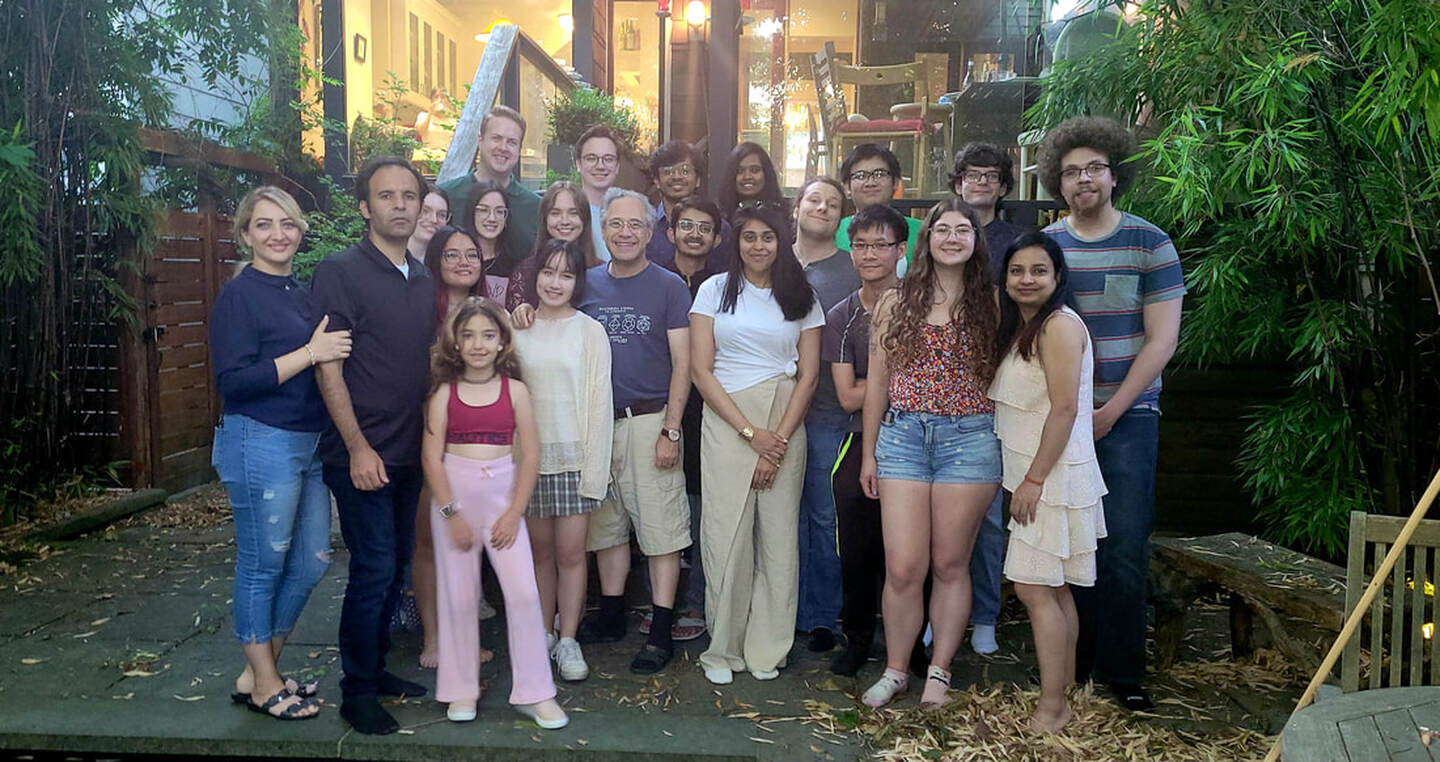
Leznoff Group Picture: Summer 2023 Party
CONTACT US
If you are interested in joining the Leznoff group or would like any further information about my research, possible projects, chemistry at SFU or living in Vancouver in general, I would be happy to hear from you at any time.
Proudly powered by Weebly
